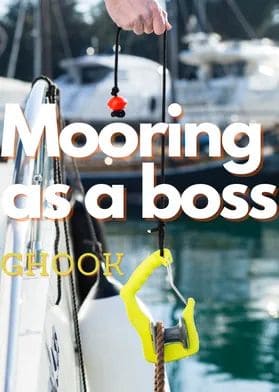Sale of Boat Oil, Grease and Lubricant
Are you looking for high-quality motor and transmission oils for the engine and gearbox of your yacht? In this section of the topRik marketplace, all the oils and lubricants you need for your yacht have already been selected for you. Choose the products that suits you, focusing on the characteristics of the motor and gearbox of your yacht. Any questions? Marketplace experts will answer any of them and give advice on which oils and lubricants are ideal for your vessel.
Types Of Oils for Outboard Motors and Gearboxes
Water transport engines operate under very specific conditions. Let's figure out which (motor) oil is best for outboard engines and which gear oil is best for outboard gearboxes, and also find out what you should focus on when choosing them.
Which Oil Is Best for Outboard Engines?
A motorboat engine operates under more extreme conditions than a car engine. Therefore, it requires special oil. The need to pour special oil into outboard motors is due to the specifics of their operation. If a car engine operates at 2000-4000 rpm, then the normal operating mode of a boat engine is 5000-5500 rpm or more. Consequently, the load on the engine is much higher.
In addition, the boat engine is in direct contact with water, which is used in the cooling system of the unit. Since water is a strong oxidizing agent, the water-repellent properties of boat oils should be significantly higher than those of automobile oils.
Another specific aspect of using oil for motor boats is related to the environment. In boat engines, exhaust gases enter directly into the body of water. This is necessary to reduce noise from the engine. Together with the exhaust gases, unburned fractions also enter the water. Therefore, outboard motor oil should burn out as much as possible to reduce environmental pollution.
Oils For Different Types of Boat Engines
Boats use two types of engines: 2-stroke or 4-stroke. The operating principle of the oil in them differs significantly.
Features of oils for 2-stroke engines
In 2-stroke units, oil is mixed directly with fuel - usually in a ratio of 1:50. As a result, a fuel-oil-air mixture is formed, which lubricates the moving parts of the engine and enters the combustion chamber. Therefore, for 2-stroke engines, the oil must have not only a certain viscosity and lubricating properties, but also a low level of smoke. Otherwise, combustion products will pollute the engine and damage it.
For lubricating fluids used in 2-stroke outboard engines, a special international standard has been developed - TC-W3. Oil receives a certificate of conformity only if it has passed the strict tests adopted by NMMA - the National Marine Manufacturers Association of the United States.
The NMMA TC-W3 standard (recommendations for use: Yamaha, Mercury, Suzuki, Tohatsu, Evinrude) takes into account two key requirements: reducing harmful emissions and extending engine life.
Based on the results of extensive tests, the following properties of oils for 2-stroke engines are assessed:
- lubricity;
- efficient transfer of force;
- tendency to ignite ahead;
- ability to slow down corrosion;
- miscibility;
- filterability;
- compatibility;
- tendency to carbon formation;
- tendency to jam piston rings.
In addition to TC-W3 oils, 2-stroke engines often require lubricants to meet the API TC class.
Features of oils for 4-stroke outboard engines
Oil for 4-stroke boat engines has characteristics close to those of automobiles.
In 4-stroke boat engines, lubrication of components occurs in the same way as in car engines. The oil in such units operates in a closed cycle and performs the following functions:
- lubricates moving parts;
- protects the motor from overheating;
- resists corrosion;
- reduces the formation of soot.
In fact, boat oil for 4-stroke outboard engines is almost no different from car oil. The difference here is only in the presence of special additives that enhance the water-repellent properties of the oil, protect the engine from oxidation and salinization, and also effectively remove fuel combustion products.
The NMMA FC-W standard has been developed for such oils (recommendations for use: Mercury, Yamaha, Suzuki Honda, Johnson, Tohatsu). Certification requirements take into account primarily:
- reduction of harmful emissions;
- improved fuel economy;
- extremely stringent requirements for corrosion protection.
- The extensive study evaluates properties such as:
- viscosity;
- filter clogging;
- foaming;
- cold start properties;
- shear stability;
- viscosity at high temperature and high shear rate;
- ability to slow down corrosion;
- evaporation losses/Noack.
Mineral Oil or Synthetic?
The choice between these types of oils depends on the operating conditions of the boat engine.
Additive-free mineral oils can be used in small-power 2-stroke engines. Since mineral water has a fairly high pour point, this lubricant is usually used to start a boat engine in the summer.
Synthetic oils meet the highest requirements for engine protection against corrosion, wear, oxidation and pollution. Synthetics are the optimal solution for forced 2-stroke and 4-stroke engines. In addition, due to their low pour point, synthetic oils do an excellent job in winter.
Oils For Popular Outboard Engines
Large manufacturers of outboard motors usually have their own requirements for oil characteristics.
In conclusion, we will answer another common question from boat owners: how often is the oil changed in a boat engine? There is one general recommendation for all engine types. Typically, the oil needs to be changed every 100 hours of engine operation. In this case, every 50 hours you should check the oil for the appearance of a burning smell. If the engine has an oil filter, this part is replaced with the second oil change.
You can familiarize yourself with the range of ADDINOL oils for water transport in our catalog. To select oil for your engine, we recommend using the online oil selection service.
Is It Possible to Use Oil for A 2-Stroke Engine in A 4-Stroke Or Vice Versa?
Oil for two-stroke engines is not designed for long-term operation and burns together with gasoline. If you pour it into a four-stroke engine, it will not provide stable viscosity, the fuel will burn quickly, and the engine will not work properly. Oil for four-stroke engines contains a package of additives that stabilize its characteristics from replacement to replacement. If you mix four-stroke oil with gasoline and pour it into a two-stroke engine, carbon will form in the combustion chamber, which will lead to clogging of the spark plugs and coking of the piston rings, the engine will operate unstably, smoke and, ultimately, fail.
What Kind of Oil Should I Put in The Gearbox of a Boat Motor?
In this case, special gear oil is used. In this case, the engine stroke does not matter. The main thing is that the lubricating fluid contains the necessary additives to reduce wear of moving parts, eliminate water emulsion, improve adhesion to metal parts and prevent corrosion.
Composition And Types of Moisture-Resistant Lubricants by Type of Base
Waterproof greases are widely used to lubricate parts, gears and bearings of outboard motors.
The basis of any waterproof lubricant for bearings, gearboxes, gears and other friction units is mineral (petroleum) or synthetic liquid oil. To obtain a thick viscous consistency with the necessary indicators of fluidity, viscosity and adhesion to a metal surface, special thickeners based on lithium or calcium soap are used. Some brands of moisture-resistant lubricants use silicone as a thickening component, but these types have a highly specialized purpose.
Calcium waterproof lubricants are highly resistant to elevated temperatures during operation and have excellent anti-corrosion properties.
Lithium waterproof greases are also heat stable and have improved shear resistance. This is one of the most common types of grease lubricants.
Today, almost all outboard motor manufacturers offer lubricants under their own brand.
Types Of Lubricants by Mode of Action
You already understand that each type of engine has its own type of oil - the same applies to lubricants. With a gearbox it is somewhat simpler, but even here, when choosing oil and lubricants for parts, you should be guided by the instructions for use.
Additives are of particular importance in the production of moisture-resistant greases. It is these additional components that determine almost all the distinctive characteristics of a particular type of thick plastic lubricant.
First of all, when choosing lubricants, pay attention to the method of its action, its purpose, among which choose lubricants:
- with anti-corrosion effect;
- reducing friction force;
- preservatives;
- prevent emulsification upon contact with water, etc.
The marking of water-resistant greases consists of an alphanumeric designation that indicates all five classification criteria in accordance with DIN 51 502. For example, grease grade KP2P-30:
- K – purpose (bearings);
- P – with extreme pressure additives;
- 2 – second viscosity class (NLGI 2);
- R – maximum temperature +180°С;
- 30 – minimum temperature -30°C.
As a rule, modern lubricants for yacht motors and gearboxes, in addition to moisture-protective properties, also have other characteristics - these are lubricants for general use. At the same time, automotive lubricants, like automobile oils, cannot be used to service yacht engines and gearboxes, since they do not have the necessary water-repellent effect.
The yacht owner must take all these features and characteristics into account when purchasing oils and lubricants for the outboard engine and gearbox. If you still have questions, ask them to the experts of the topRik marketplace. These experienced sailors will advise you free of charge, and you will choose exactly the oil and lubricants that are needed specifically for your yacht.


